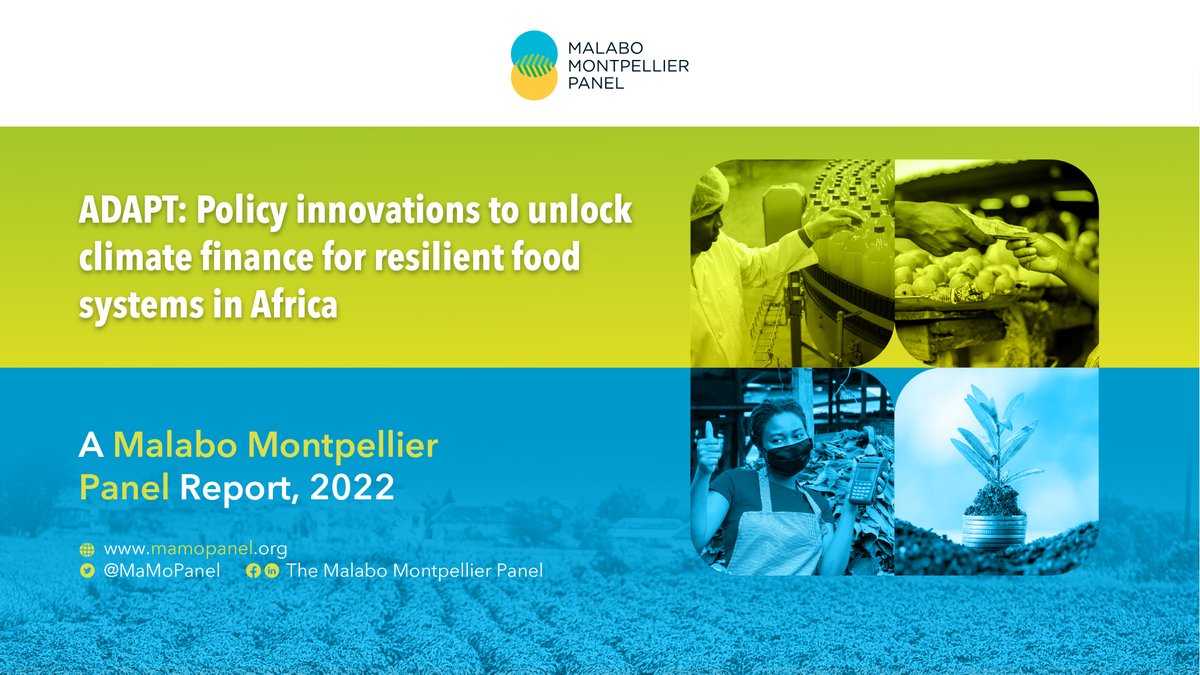African governments will need to tap into all domestic and global sources of adaptation finance to meet a shortfall of more than $40 billion to climate-proof food systems, according to the Malabo Montpellier Panel.
Current levels of adaptation financing needs for agriculture, forestry, and land use (AFOLU) and water sectors in Africa amount to an estimated $41.3 billion, according to a report launched by the Panel of experts at the Malabo Montpellier Forum in Dakar, Senegal, organized with the Centre de Suivi Écologique (CSE).
However, research indicates that small-scale farmers, agri-entrepreneurs, and those in related industries received just $3.6 billion in adaptation finance in 2017/18.
The report, entitled ADAPT: Policy innovations to unlock climate finance for resilient food systems in Africa, highlights opportunities for African countries to stimulate more public and private sector financing while also calling for greater access to global funding.
“With the continent set to represent a quarter of the global population by 2050, the future will be shaped by Africa, and Africa’s future will be shaped by itsPoli food systems,” said Ousmane Badiane, Co-chair of the Malabo Montpellier Panel. “African countries are already seizing the initiative to direct national resources toward helping agriculture and food production cope with climate extremes. Our report shows how governments can maximize existing tools and leverage homegrown innovative financing to further bolster food security on the continent”.
The Malabo Montpellier Panel’s climate finance report analyzes four systematically selected African countries – Benin, Mali, Rwanda, and Zimbabwe – to review how governments could optimize investments in climate-resilient food systems through innovations such as national climate funds, blended public-private finance, and participatory funding structures coupled with innovative policy-design and institutional structures.
For example, Benin has created several institutions to support adaptation, including the National Fund for Environment and Climate Change (FNEC) and the Community Development Support Fund (FaDEC).
In addition to establishing the centralized Mali Climate Fund, Mali was also among the top seven recipients of climate adaptation finance between 2011 and 2020 thanks to its close partnerships with international development partners.
Meanwhile, the Government of Rwanda has invested heavily in establishing new, innovative, and world-class institutions such as the National Fund for Environment (FONERWA), which supports a demand-led approach for bridging funding gaps.
There is also the case of Zimbabwe where the government has collaborated with the Green Climate Fund (GCF) to design the Zimbabwe GCF Country Programme, a four-year plan to ensure the country’s readiness to mobilize climate finance from the GCF.
“The countries highlighted in this report have shown that Africa is mobilizing proactively to determine its own destiny when it comes to resilience under climate change,” said Joachim von Braun, Co-chair of the Malabo Montpellier Panel. “Rural populations will benefit from investing in climate resilient food systems by green economic growth with green jobs”.
The report follows the recent UN COP27 climate talks, where negotiators agreed to establish a fund to compensate developing countries for the loss and damage already caused by climate change, such as the four consecutive failed rainy seasons in East Africa.
In addition to a loss and damage fund, high-income countries previously committed to providing $100 billion a year to support adaptation in low-income countries, which has yet to be met. The report authors find that Africa accessed just five per cent of the global finance available, while less than 20 per cent of private sector climate finance went toward adaptation.
According to the Malabo Montpellier Panel’s report, climate change will lead to an equivalent annual GDP loss of 10 to 20 per cent in Africa by 2100 with low or non-existent and inappropriate adaptation measures.
“The African Union has made addressing the impacts of climate change a top priority because of its far-reaching consequences for people, livelihoods and communities,” said Cheikh Mbow, Director of the Centre de Suivi Écologique (CSE). “This report provides valuable insights to empower African governments in the many ways they can direct more streamlined and effective funding towards future food security.”



